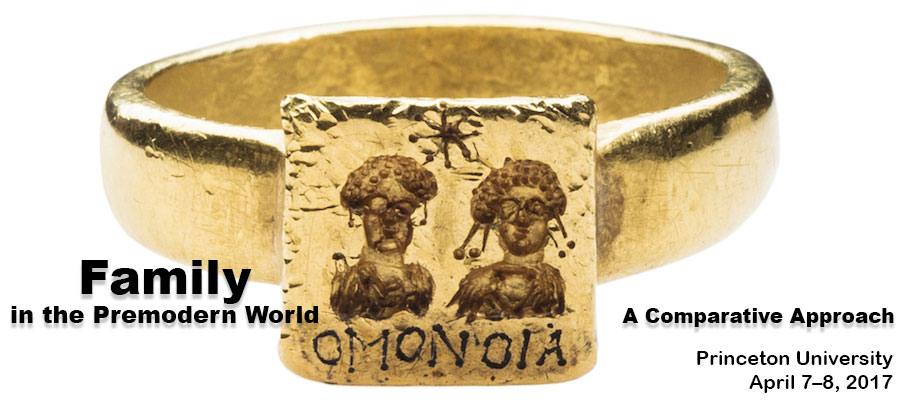Family in the Premodern World: A Comparative Approach, Princeton University, April 7–8, 2017
The family is perhaps the most basic, common and important social institution across the world in recorded history. The single word in English, however, is used in a surprising number of ways to describe how to organize an individual and those close to them by birth, marriage or co-residence within a more- or-less coherent group. Indeed families, just as other cultural institutions, have long been defined by cultural norms and practices.
While the modern definition of the family is becoming ever more fluid and ‘new’ types of families appear in greater frequency, even a superficial survey of historical human cultures shows that there is no such thing as a ‘natural’ form of family, and that the concept has been constantly changing throughout history. The family could be an inclusive or exclusive institution within a society, while its size would vary between a handful to a few dozen individuals; the interpersonal ties between family members could withstand enormous social pressures or disintegrate almost immediately. A culture might impinge on the relationships within families or ignore them completely. We believe that a comparative approach would be the best way to emphasize these contrasts and the connection between them and the basic norms that govern a given society.
We invite papers that emphasize the themes of family and society and investigate the historical premodern family (up to the sixteenth century in Europe, but later suggestions for other areas would be welcome). Geographical areas and chronological periods are open and we aim for a wide comparative perspective of the workshop as a whole.
Topics can include, but are not limited to:
- A case study of a specific family or group of families within a society
- Structures of kinship and the forms of ties they create within a kin group
- Strategies of inclusion/exclusion within a family or between families
- A chronological approach to family development in a certain society
- Connections between family values and broader cultural dispositions
- Conflicts within or between families and acceptable ways to resolve them
- Marriage, divorce and family planning as family-construction strategies
- Social values, norms or taboos related to families within a given society
- Alternative or deviant family models
The workshop will take place on April 7-8, 2017 at Princeton University. Travel and accommodation funding is available for presenters from beyond the NJ/NY area. After the workshop, participants will be invited to submit their revised papers for publication in a special journal issue that will showcase the variety of premodern families and serve as a stepping stone for further comparative research on families in such societies in history.
Organizers
Lee Mordechai
Sara McDougall
